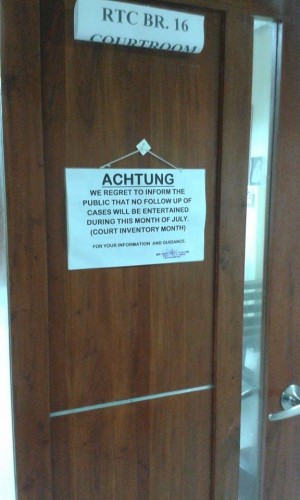
(CDN PHOTO/ ADOR VINCENT S. MAYOL)
Several hearings in the Hall of Justice in Cebu City have been reset to another date as trial courts begin their semi-annual inventory of cases.
Except for cases that need immediate action, courts here and other parts of the country will hold off hearings to give court employees ample time to conduct a physical inventory of pending cases and properties.
This is done in January and July.
“Twice a year, we have to update the Supreme Court (SC) regarding the cases assigned to the courts, and how judges handle them,” said lawyer Chevin Vasquez, clerk of court of the Regional Trial Court Branch 9 in Cebu City.
The inventory includes records of property and aims to determine existing conditions of office equipment, furniture, books, and other properties.
However, courts still attend to urgent matters such as applications for bail, arraignment, and act on petitions for a writ of habeas corpus, writ of habeas data, and writ of amparo.
An inventory will show whether judges are deciding cases within the required timeframe. For example, a criminal case must be decided within 90 days after it is submitted for resolution.
Last year, a retired Cebu judge was fined P100,000 by the High Court for failing to resolve 191 cases before his term ended in 2011.

